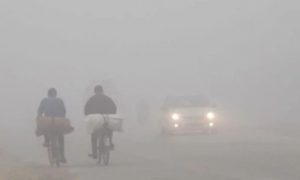Bangladesh has acknowledged more than 80 incidents of communal violence against minorities, mostly Hindus, since Sheikh Hasina’s ouster in August.
With the ongoing protests in parts of India over the alleged atrocities on Hindus in Bangladesh, the neighbouring country has acknowledged incidents of attacks on minorities, primarily Hindus, there.
On Tuesday, Bangladesh confirmed that the country has registered 88 cases in incidents related to minorities from August 5 to October 22. It also said at least 70 people have been arrested for the same.
The disclosure was made by interim government head Muhammad Yunus’ press secretary Shafiqul Alam.
Detailing the arrests, the Bangladesh government said that the Budha Christian Parishad reported incidents of violence between August 4 and 20, prompting the police to lodge 62 cases and arrest 35 people.
Read More: 2024 Set To Break Temperature Records And Become Hottest Year Ever, Surpassing 1.5°C Threshold
From August 5 to October 22, there were 26 reported cases of attacks on religious sites, leading to the arrests of 35 more rioters, according to government data.
“The number of cases and arrests is likely to increase as new incidents of violence have also been reported in (northeastern Sunamganj, (central) Gazipur, and other areas,” he said.
He added that there might be cases where some victims were members of the previous ruling party.
“Some attacks targeted individuals who were former members of the ruling party or they were the result of personal disputes. Nevertheless, since violence occurred, the police are taking appropriate action,” he said.
Alam also said that details regarding the incidents that took place after October 22 will be shared soon.
The revelation came months after Sheikh Hasina, Bangladesh’s former Prime Minister, fled the country in August.
On December 9, Foreign Secretary Vikram Misri had flagged regrettable incidents of attacks on minorities and conveyed India’s concerns, including those related to the safety and welfare of minorities, during his meetings with the Bangladeshi leadership.
There have been a spate of incidents of violence against Hindus and other minorities, as well as attacks on temples in Bangladesh in the last few weeks that triggered strong concerns in New Delhi.
Read More: France Plunges Into Political Crisis As PM Barnier Loses No-Confidence Vote
MISRI REACTS
Meanwhile, Misri said the talks in Dhaka gave India an opportunity to take stock of the situation after the fall of the Sheikh Hasina administration.
“We want a positive relationship with Bangladesh, which will mutually benefit us. I emphasised that India desires a positive, constructive, and beneficial relationship with Bangladesh. We want a people-centric relationship, and we have a desire to work closely with the current interim government in Bangladesh,” he said.
Misri also said that he raised concerns over the safety of minorities in the country, in the wake of the arrest of Hindu monk Chinmoy Krishna Das and a spate of attacks on Hindus in recent months.
Read More: Bangladesh Recalls Diplomats From India’s Kolkata, Tripura Amid Rising Tensions
PAN-INDIA PROTESTS IN INDIA
On December 10, members of various Hindu organisations and civil society groups staged protests across India against attacks on community members in Bangladesh.
While hundreds of people from various outfits, including the Rashtriya Swayamsevak Sangh (RSS), held a protest march at Delhi’s Chanakyapuri, a similar rally was taken out in Lucknow condemning the attacks on Hindus in the neighbouring country.
At Dharamsala in Himachal Pradesh, protesters marched to the deputy commissioner’s office to show solidarity with the Hindus in Bangladesh, while in Jammu, a large number of protesters took to the streets demanding the intervention of the Centre and the United Nations in the matter.
Similar protests, which coincided with World Human Rights Day, were also staged in Jaipur, Ahmedabad, Ranchi, Guwahati, Bhubaneswar and Kolkata, among other places.
In Delhi, security was stepped up outside the Bangladesh High Commission in Chankyapuri where a large number of protesters gathered to raise the plight of Hindus in Bangladesh.
Demanding the intervention of the United Nations Human Rights Council (UNHRC) in the matter, the protesters carrying placards called upon Bangladesh to stop the alleged “genocide” of Hindus in the country.





































